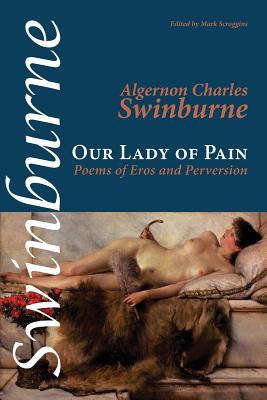Swinburne was born in 1837 in London and spent his childhood on the Isle of Wight and in Northumberland. He attended Eton and then Balliol College, Oxford, where he became friends with the Pre-Raphaelites Rossetti, Morris and Burne-Jones. Atalanta in Calydon was released in 1865 to considerable acclaim, but the following year his Poems and Ballads generated a firestorm of critical and public controversy on account of their licentiousness and anti-theism. His publisher withdrew the book within days of publication, and he was forced to transfer his works to another house.
His next collection Songs Before Sunrise (1870), the plays Bothwell (1874) and Erectheus (1876), and the 1878 Poems and Ballads, Second Series were far more favourably received than the first Poems and Ballads had been. Swinburne was prodigiously active through the 1870s, but his personal life was in alarming disarray, and his alcoholic dissipation forecast an almost certain early grave. In 1879, he was 'rescued' by the lawyer and writer Theodore Watts-Dunton, who took him to a suburban retreat in Putney, weaned him from his drinking habit, and became his companion and de facto guardian for the rest of his life, which was productive and largely uneventful. He died in 1909.
No Victorian poet suffered a more precipitous decline in reputation in the twentieth century than Swinburne. His formal and musical mastery, however, have never been denied, and more recent readers have found in his work a surprising precision of language and subtlety and complexity of thought.
Our Lady of Pain is the first selection of Swinburne's poetry to focus precisely on what early readers found most objectionable: erotic passion, in both its 'normal' and 'perverse' varieties. Swinburne's treatment of physical passion, and the varieties of passion about which he chose to write, retain the power to shock. Swinburne's early work explores same-sex desire, necrophilia, transexualism, and even bestiality, and throughout his writing is an obsession with the conjunction of 'pleasure' and 'pain'. Included here are many of the most transgressive poems from Poems and Ballads, along with a selection of other works that make a strong argument for the Swinburne as the greatest nineteenth-century English poet of sexual desire.
